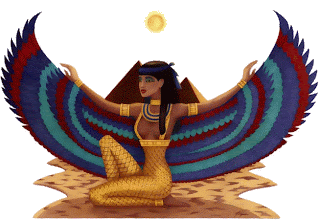There is no study so saddening, and none so sublime as that of the early religions of mankind. To trace back the worship of God to its simple origin, and to mark the gradual process of those degrading superstitions, and unhallowed rites which darkened, and finally extinguished His presence in the ancient world.
At first men enjoyed the blessings of nature as children do, without inquiring into causes. It was sufficient for them that the earth gave them herbs, that the trees bore them fruit, that the stream quenched their thirst. They were happy, and every moment though unconsciously they offered a prayer of gratitude to Him whom as yet they did not know.
And then a system of theology arose amongst them vague and indefinite, as the waters of the boundless sea. They taught each other that the sun, and the earth, the moon, and the stars were moved and illumined by a Great Soul which was the source of all life, which caused the birds to sing, the brooks to murmur, and the sea to heave. It was a sacred Fire which shone in the firmament, and in mighty flames. It was a strange Being which animated the, souls of men, and which when the bodies died, returned to itself again.
They silently adored this Great Soul in the beginning, and spoke of Him with reverence, and sometimes raised their eyes timidly to His glittering dwelling-place on high.
And soon they learned to pray. When those whom they loved lay dying, they uttered wild lamentations, and flung their arms despairingly towards the mysterious Soul; for in times of trouble the human mind so imbecile, so helpless, clings to something that is stronger than itself.
As yet they worshipped only the sun, the moon, and the stars-and not as Gods but as visions of that Divine Essence, which alone ruled and pervaded the earth, the sky, and the sea.
They adored Him kneeling, with their hands clasped, and their eyes raised. They offered Him no sacrifices, they built Him no temples; they were content to offer Him their hearts which were full of awe, in His own temple which was full of grandeur. And it is said that there are yet some barbarous islands where men have no churches nor ceremonies, and where they worship God, reflected in the work of His thousand hands.
But they were not long content with this simple service. Prayer which had first been an inspiration fell into a system, and men already grown wicked prayed the Deity to give them abundance of wild beast's skins, and to destroy their enemies.
They ascended eminences, as if hoping that thus being nearer God, He would prefer their prayers to those of their rivals. Such is the origin of that superstitious reverence for high places which was universal throughout the whole of the heathen world.
Then Orpheus was born. And he invented instruments which to his touch and to his lips, gave forth notes of surpassing sweetness, and with these melodies he enticed the wondering savages into the recesses of the forest, and there taught them precepts of obedience to the great Soul, and of loving-kindness towards each other in harmonious words.
So they devoted groves and forests to the worship of the Deity.
There were men who had watched Orpheus, and who had seen and envied his power over the herd who surrounded him. They resolved to imitate him, and having studied these barbarians, they banded together, and called themselves their priests. Religion -is divine, but its ministers are men. And alas! sometimes they are demons with the faces and wings of angels.
The simplicity of men, and the cunning of their priests has destroyed or corrupted all the religions of the world.
These priests taught the people to sacrifice the choicest herbs and flowers. They taught them formulas of prayer, and bade them make so many obeisances to the sun, and to worship those flowers which opened their leaves when he rose, and which closed them as he set.
They composed a language of symbols which was perhaps necessary, since letters had not been invented, but which perplexed the people and perverted them from the worship of the one God.
Thus the sun and moon were worshipped as emblems of God, and fire as an emblem of the sun, water as an emblem of the moon.
The serpent was to be worshipped also as an emblem of wisdom and eternal youth, since it renews its skin every year, and thus periodically casts off all symptoms of old age.
And the bull, most vigorous of animals, and whose horns resemble those of the crescent moon.
The priests observed the avidity with which the barbarians adored these symbols, and increased them. To worship the visible is a disease of the soul inherent to all mankind, and the disease which these men could have healed they pandered to.
It is true that the first generation of men might have looked upon these merely as the empty symbols of a Divine Being, but it is also certain that in time the vulgar forgot the God in the emblem, and worshipped that which their fathers had only honored.
It may perhaps interest you to listen to the first fable of the world.... (more)